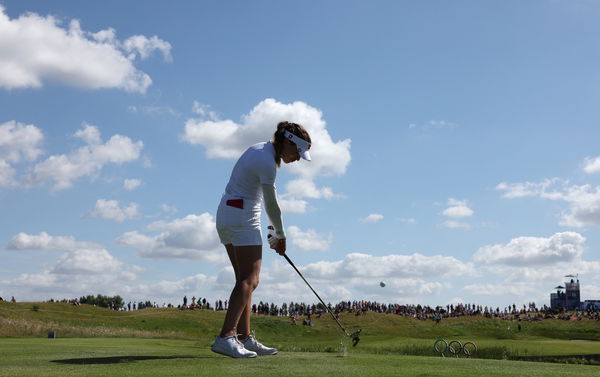

While golf is known as a game of patience, professional tours are increasingly showing they have no patience for slow play. It has become a major issue on the LPGA Tour, with rounds often stretching beyond five-and-a-half hours and fans dubbing the 2024 AIG Women’s Open “barely watchable” due to the glacial pace. The LPGA Tour demonstrated this stance forcefully during the 2025 Black Desert Championship in Utah. Officials weren’t messing around when it came to keeping things moving, sending a clear message to the entire field.
Young Japanese pro Chisato Iwai felt the sting of this enforcement. During round two, she received a two-stroke penalty for slow play on the par-3 8th hole. The LPGA Media made this public through an X post stating: “Chisato Iwai was assessed a two-stroke penalty for slow play on No. 8 during round two.” This penalty immediately added two strokes to her score and impacted her tournament standing.
Chisato Iwai was assessed a two-stroke penalty for slow play on No. 8 during round two. @LPGA | @BDChampionship
— LPGA Media (@LPGAMedia) May 3, 2025
ADVERTISEMENT
Article continues below this ad
This penalty comes as the LPGA is doubling down on its commitment to improving the pace of play. The two-stroke penalty changed Iwai’s score from 70 to 72 for the round. Such penalties have real consequences for players’ tournament positions and potential earnings. The severity reflects a growing frustration among players, officials, and fans with the sluggish pace plaguing professional golf.
Before 2025, the pace of play violations rarely resulted in stroke penalties. That changed dramatically when the LPGA unveiled its new policy in February. Players now face a graduated system of penalties. Taking 1-5 seconds too long results in a fine. Going 6-15 seconds over brings a one-stroke penalty. Taking more than 16 seconds too long triggers the harsh two-stroke penalty that Iwai received.
World No. 1 Nelly Korda, who has consistently advocated for faster play, enthusiastically welcomed the new policy, saying, “Finally, yeah, I’m very excited about it.” She believes stricter enforcement is necessary to save the sport’s appeal, adding, “At the end of the day, we’re a form of entertainment… if we’re taking really long out there, I mean, that’s not entertaining.” Her comments reflect growing frustration among players, fans, and officials with the recurring problem of slow play plaguing women’s professional golf.
ADVERTISEMENT
Article continues below this ad
Contrasting approaches to golf’s pace problem
Not everyone agrees with these strict measures. Some players argue that quality shots require careful deliberation. They believe rushing could degrade play quality, especially for technical shots around the greens. Meanwhile, other players like Charley Hull have suggested even tougher consequences. “I’m quite ruthless, but I said, listen, if you get three bad timings, every time it’s a two-shot penalty,” Hull stated last year. She proposed that three violations should result in losing tour card privileges, reflecting her frustration after experiencing rounds lasting nearly six hours.
What’s your perspective on:
Is the LPGA Tour's crackdown on slow play justified, or is it stifling players' natural rhythm?
Have an interesting take?
The PGA Tour has taken a different approach by planning to reduce field sizes starting in 2026. This contrasts with the LPGA’s more direct penalty system. The women’s tour recently added a season-long tracking system that tallies timed holes for each player. Those with 40 or more timed holes during the season will face additional fines. This comprehensive approach targets habitual slow players who might otherwise escape notice.
ADVERTISEMENT
Article continues below this ad
Golf’s ongoing pace debate centers on finding the right balance between quality and efficiency. Interim LPGA commissioner Liz Moore’s new policy aims to ” create a more efficient and enjoyable competitive environment.” Early results are promising—at the recent Founders Cup, no group exceeded the target time of four hours and forty-five minutes. Whether penalties like Iwai’s will lead to lasting change remains to be seen, but the message is clear: professional golf is serious about speeding up play.
Are strict penalties like Iwai’s necessary to fix golf’s pace problem, or are officials being too harsh on players? Let us know in the comments section below!
ADVERTISEMENT
ADVERTISEMENT
ADVERTISEMENT
ADVERTISEMENT


"Is the LPGA Tour's crackdown on slow play justified, or is it stifling players' natural rhythm?"